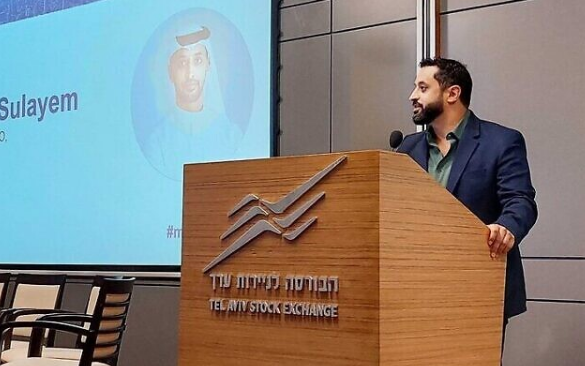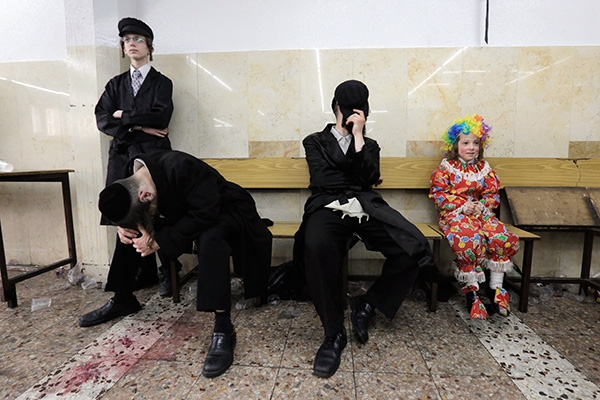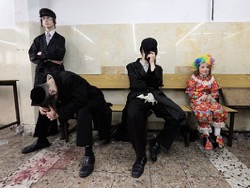CEO Ahmed Bin Sulayem looking for water, IT security, crypto businesses as bilateral trade continues to grow
In an indication of the potential the UAE sees in its relationship with Israel, the leader of the Emirates’ largest free trade zone made his pitch to hundreds of Israeli entrepreneurs in Tel Aviv on Tuesday, seeking to cast Dubai Multi Commodities Centre as a welcoming home for Israeli businesses.
“Israel is both a major stakeholder for DMCC and one of our key target markets,” said CEO Ahmed Bin Sulayem in an address at the Tel Aviv Stock Exchange.
“These ties are going from strength to strength as our two countries become more intertwined through new projects and initiatives,” he said.
There are currently 78 Israeli companies operating in the DMCC. The free trade zone offers a range of advantages, including no corporate tax, access to the Gulf market and Asia, minimal bureaucracy, and cheap manpower from India.
Israeli companies in the DMCC can operate as a local entity and do business with countries that do not recognize Israel, said Sanjeev Dutta, executive director of commodities and financial services at DMCC.
Dubai’s free zones have separate legal systems and commercial laws from the rest of the country.
Bin Sulayem, 44, told The Times of Israel that he sees Israel as a strategic partner, especially in the fields of IT security and water conservation.
Bin Sulayem’s ongoing encounters with Israeli companies are one of the reasons the DMCC — a massive district with over 75 office towers and 100,000 people living and working there — is opening a water center.
“It was inspired a little bit by Aqua Index and Watergen,” he explained, referencing two Israeli companies.
Aqua Index seeks to turn water into a tradable commodity by creating a standard price for fresh water, while Watergen markets proprietary water-from-air technology to expand access to drinking water.
The 20-year-old DMCC is known primarily for its commodity trade, especially diamonds, precious metals, coffee, and tea.
Israeli companies in these fields are already operating in the free trade zone. The Israel Diamond Exchange opened an office in the DMCC in February, and Bin Sulayem held meetings with Israeli supermarket mogul Rami Levy and Landver Coffee owner Ori Federman months before the Abraham Accords were signed in September 2020.
“There’s a lot of opportunity there,” said Dror Maoz, managing director at GoldRock International DMCC. “A lot of the diamond industry has moved there.”
Maoz opened his office in the DMCC in the wake of the Abraham Accords, citing the tax exemptions and direct, three-hour flights between Israel and Dubai.
But Bin Sulayem is determined to attract Israeli companies in other fields. “We are more than diamonds,” he insisted.
He said he was pleasantly surprised by the diversity of Israeli businesspeople who attended Tuesday’s DMCC “Road Show.”
“I didn’t expect so many tech people,” he reflected, pointing at conversations he had with crypto and renewable energy entrepreneurs in Tel Aviv.
The interest from Israeli leaders in those fields lines up with DMCC priorities. In May 2021, DMCC launched its Crypto Centre for blockchain and cryptographic businesses.
Bin Sulayem said that many of the Israelis he spoke with were coming in with very little knowledge of the UAE business climate, and showed up to learn. “Today is more of an orientation,” he said.
Yosef Sara, a real estate CEO operating in the US, said he came to gain an initial impression of doing business in Dubai and to build connections.
“Most people I met have the same feeling as me,” he said. “They understand there’s an enormous opportunity, and [Dubai] brought something big here to Israel.”
Sara is intrigued by the UAE’s rapid economic growth. “They have wealth, and we can dream. You see the buildings, and it’s incredible to someone like me who is passionate about real estate.”
According to the Economy Ministry, bilateral trade with the UAE reached close to $900 million in 2021. This year, through the end of October, trade topped $2 billion, not counting software.
Free trade talks between the countries kicked off in November 2021, leading to an agreement in May this year.
Bin Sulayem expects the positive trend to continue, especially with meat being added to the bones of the Abraham Accords. “You have waves of entrepreneurs,” he said. “Some want to go to a place that’s not yet established, whether it’s infrastructure, whether it’s politics, whether it’s both. And some who wait until it’s more established.”
He expects to see more Israeli shipping companies work with Emirati logistics giant DP World, with terminals in 40 countries on every continent except Antarctica.
For Bin Sulayem, his mission to attract Israeli companies is not an easy one. Dubai alone has over 40 free trade zones, each with its own terms. They are generally industry specific, such as Dubai Internet City for tech companies and Dubai Science Park for the health and pharma sectors.
DMCC is in competition with many of the other free zones.
The Israeli side also faces hurdles.
An Israeli official who asked to remain anonymous agreed that Israelis “have no idea how to do business there.”
The official identified other challenges, including the lack of financial infrastructure to enable the rapid transfer of money from Israel to the UAE.
Maoz said that Israelis have the same mentality as the many Indian businessmen they deal with in Dubai. But cultural differences are apparent between Emiratis and the no-nonsense Israelis.
“There’s a different way of approaching business,” he said. “It’s slower, it’s more built on a friendship.”








